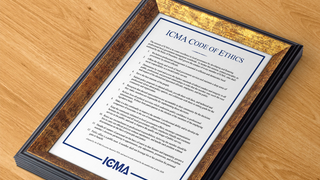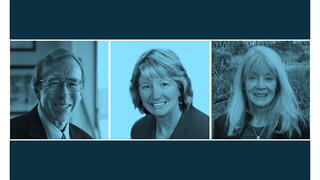
For the past 100 years, adherence to this Code of Ethics has been the bedrock of ICMA membership.

Advice from ICMA Senior Advisors

While achieving our goals is important, how we achieve our goals is no less important. [PM Magazine, December 2019]

The ICMA.org Q&A feature empowers users to get answers to their difficult local government management questions. Do you have a debris management plan?



